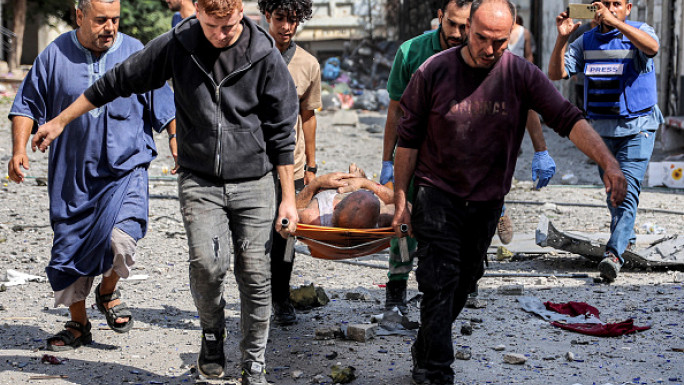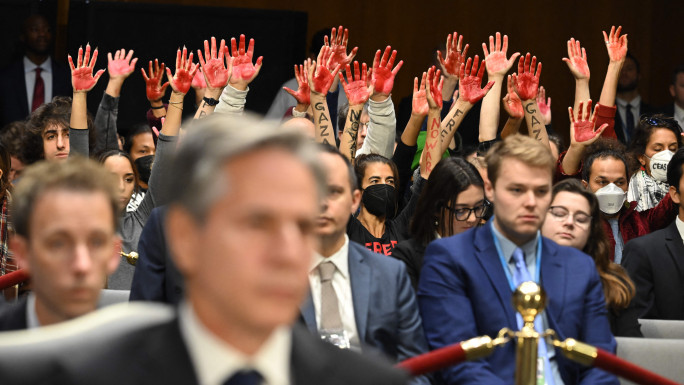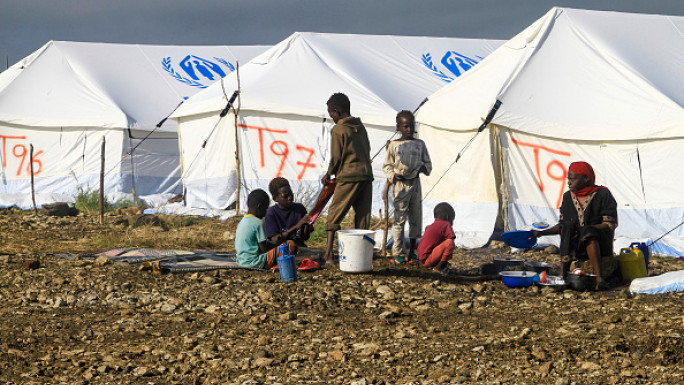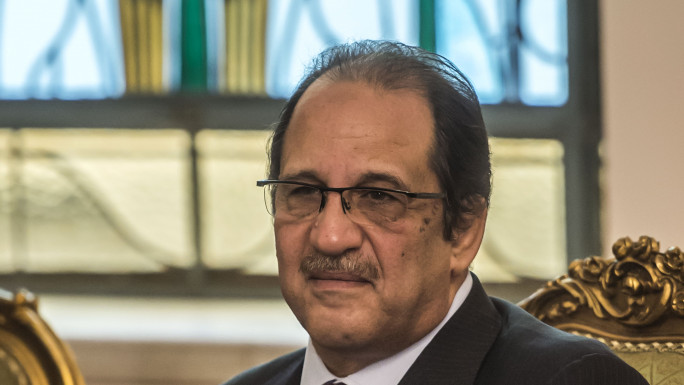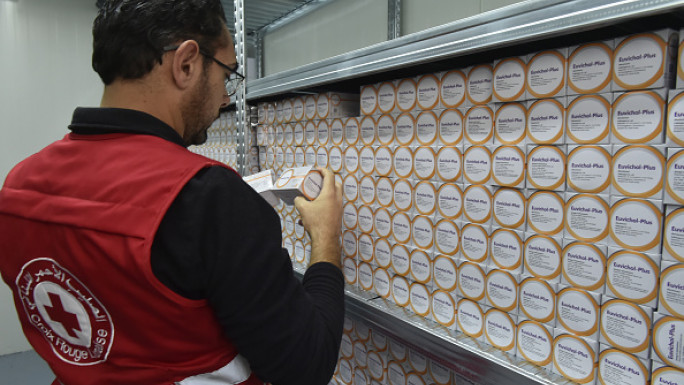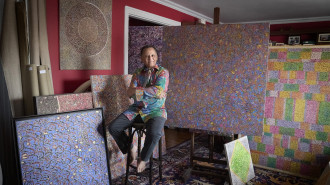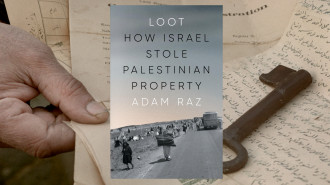
Why Palestinian director Laila Abbas wanted to tackle gender inequality in her debut feature film Thank You for Banking With Us!

Palestinian director Laila Abbas’ debut feature film, Thank You for Banking With Us!, will have its world premiere this week at the London Film Festival during arguably the most difficult period in Palestine’s history — a year of Israel's genocidal war on Gaza which has killed over 42,000 Palestinians, including more than 16,000 children and displaced 1.9 million people.
Set in Ramallah, the West Bank’s administrative capital, Thank You for Banking With Us! is not a typical Palestinian film centred around the occupation.
Instead, Laila Abbas uses light-hearted humour to tackle family issues and gender inequality in Palestinian society, looking specifically at Islamic inheritance laws, which favour men significantly more than women — as under Sharia law, sons inherit double the amount of their sisters.
“I wanted to tell a story about us," Laila told The New Arab. “In most Palestinian films, it's us versus them [Israelis], and I felt that we need a space to tell our own stories to show the complexity of our lives.”
"Thank You for Banking With Us! is a film that many people in Muslim-majority countries will be able to relate to, but also anyone raised in patriarchal societies"
The film centres on two sisters, Noura (played by Beirut-born Egyptian-Palestinian actress Yasmine Al Massri, from Nadine Labaki’s Caramel and Disney+’s Quantico) and Maryam (Palestinian-American actress Clara Khoury, who starred in Baghdad Central and Homeland).
A beautician who dreams of moving abroad and opening her salon and an unhappy housewife who is a mother of two boys, Noura and Maryam receive news early in the film that their father has passed away.
But little time is allowed to mourn, as they find out he left them a considerable amount of money. So they plan an elaborate scheme to retrieve it from the bank before his death is publicly announced, since, as per Islamic law, the sisters would only receive 25% of the total share each, while half would go to their estranged brother in the US if they go through the official route.
Thank You for Banking With Us! is a film that many people in Muslim-majority countries will be able to relate to, but also anyone raised in patriarchal societies.
The context is both Palestinian and universal — set in Ramallah, with occupation in the backdrop, but with lead characters dealing with everyday issues such as financial trouble, gender discrimination, divorce, and troublesome teenage kids.
A key theme that the film engages with is the question of how important, or at least how much of a priority, women’s rights and the fight for gender equality are in the political context of a brutal occupation in which every Palestinian is oppressed.
“In Palestine, unlike other Arab and Muslim countries, a lot of women try to have this conversation with the larger society, but then the reaction is like: Is this really the time to think about women's rights and inheritance now, when we have no rights whatsoever? First, we need to focus on liberation, and then we think about that,” Laila told The New Arab.
The director explained that as she made the film over several years, she maintained that these gender issues matter significantly and shouldn’t be dismissed.
“I think liberation… you cannot divide it," Laila continued. "Everything needs to go hand-in-hand, and you need to liberate the human being to liberate the country.”
This issue is best illustrated in the film through a comical scene that Laila hopes will resonate with many people in the MENA region, and beyond. The elder daughter Maryam confesses to her uncle that she needs money to help her become independent as she wants to divorce her unfaithful husband. The uncle is in shock, saying that she can’t think about separating him now, in this time of political and financial instability, and as Israeli violence increases (n.b.: the film was written and shot before October 7, 2023).
Maryam replies, in characteristic irony: “Should I wait for Palestine to be free to get a divorce?”
But as Laila speaks today, more than a year into Israel’s genocidal war, she’s not sure if she still feels this way, as so much has changed since she filmed this in summer 2023.
“After what happened in Gaza and what's happening in Palestine, it did occur to me that I should have talked about something else. It's not the time for this. No, we really do not have human rights. We are killed in our thousands, and nobody cares. So, maybe human rights and the right to live come first. It’s a luxury what I’m talking about [in this film].”
Hindsight and over a year of suffering and death can do that to people, and provoke a re-questioning of what’s important and what’s not. But through personal stories that deal with domestic life rather than the political, Thank You for Banking With Us! illustrates the everyday wants and needs of Palestinian women, who confront various forms of oppression.
"Despite these serious subject matters, Laila’s use of dark humour and sarcasm is a recurrent motif to lighten the mood and poke fun at everyday occurrences"
Laila, who has three sisters and no brothers, connected deeply and personally with the issues depicted in the film. She said that “these stories [of inheritance] don’t come out much” in film or media, but they “come up all the time” in everyday life.
“It seems, to me and many other women, that they [Islamic inheritance laws] need to be reviewed today, because life has changed drastically now, and these laws need to be more suited for our time and age.”
Despite these serious subject matters, Laila’s use of dark humour and sarcasm is a recurrent motif to lighten the mood and poke fun at everyday occurrences.
“Finding the irony in everything happening around you can be therapeutic otherwise, you would go crazy if you keep contemplating how grim life is,” the director said.
In one scene, the younger sister, Noura — who Laila believes is the voice of many Palestinian women today who try not to engage with politics as they are convinced that nothing, or very little will change — tells her older sister Maryam that she wants to move to the US to open her own salon. Her sister wryly responds: “Do they not have beauty salons in America?”
Meanwhile, the setting around them paints a picture of Ramallah pre-October 7 that is at once an indelible part of Palestinian society but also, according to Laila, the “bubble of Palestine.”
Its depiction of isolated nouveau riche families on the one hand, youths on the city outskirts defying Israeli forces on the other, while many people watch Al-Araby news reports of settler violence on TV at home, convinced that the violence is distant and won’t reach Ramallah, evokes a society fragmented in class and politics, but united in its refusal to be silenced or erased.
“They [Israeli forces] arrest people, but then disappear, and then the next morning, the city wakes up and is in denial again, so I tried to portray that without really making it the focus of the story, rather it's the setting of the story.”
A co-production between Palestine, Germany, Saudi Arabia, Qatar, and Egypt, Thank You for Banking With Us! is distributed internationally by MAD Solutions, the same team that backed Sudan’s first Cannes entry Goodbye Julia.
It will premiere in London on October 17 and 18, before having its North American premiere in Los Angeles at the AFI Festival on October 26 and then its MENA premiere at the El Gouna Film Festival (GFF) in Egypt.
Laila Abbas is well aware of how difficult it is to make a Palestinian film that is appreciated by both Palestinian and Western audiences, but she hopes that this could be it.
“I hope that this story can come to everyone somehow, that they can find something they can relate to,” she told The New Arab.
“But when I made this film, I wasn't even thinking about foreign audiences. I don't care. This is a conversation that we should have here in Palestine, in the Arab world, in the Muslim world. It is about time that we talk about this.”
Alexander Durie is a journalist working across video, photography, and feature writing. He has freelanced for The Guardian, Al Jazeera English, The Economist, The Financial Times, Reuters, The Independent, and more, contributing dispatches from Paris, Berlin, Beirut, and Warsaw
Follow him on Instagram: @alexander.durie




